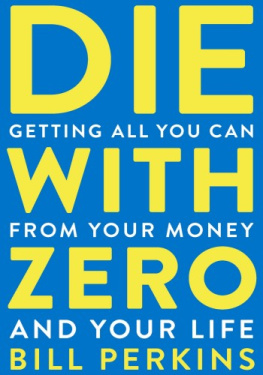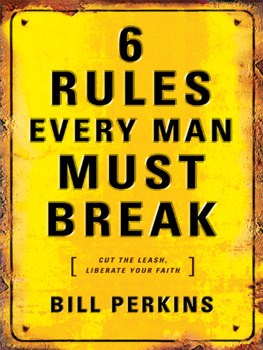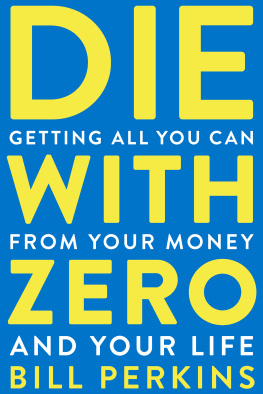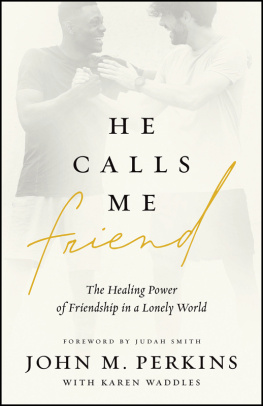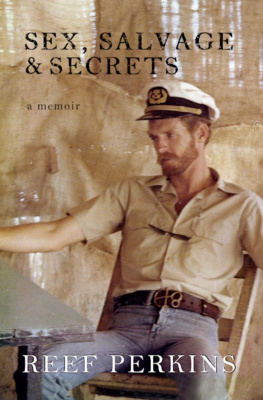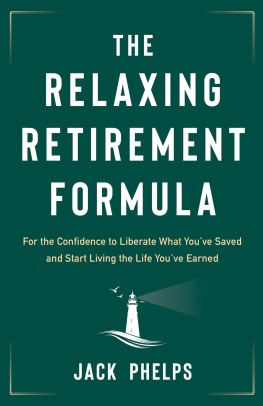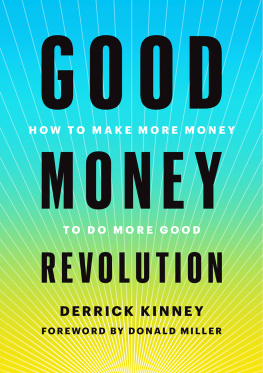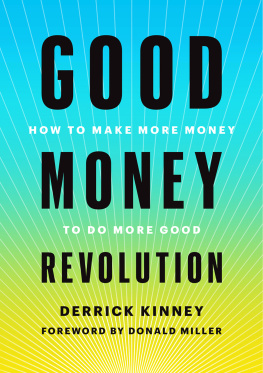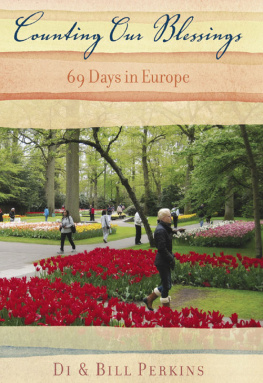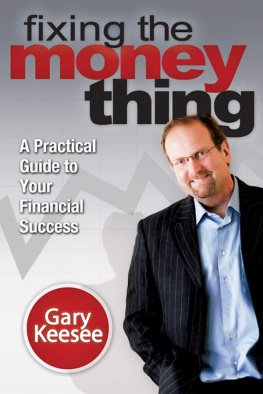Contents
Copyright 2020 by William O. Perkins III
Graphics by Charles Denniston. Used by permission.
All rights reserved
For information about permission to reproduce selections from this book, write to or to Permissions, Houghton Mifflin Harcourt Publishing Company, 3 Park Avenue, 19th Floor, New York, New York 10016.
hmhbooks.com
Library of Congress Cataloging-in-Publication Data
Names: Perkins, Bill (William O.), 1969 author.
Title: Die with zero : getting all you can from your money and your life /
Bill Perkins.
Description: Boston : Houghton Mifflin Harcourt, 2020. | Includes
bibliographical references and index.
Identifiers: LCCN 2019033906 (print) | LCCN 2019033907 (ebook) | ISBN 9780358099765 (hardcover) | ISBN 9780358310280 | ISBN 9780358310365 | ISBN 9780358100515 (ebook)
Subjects: LCSH: Finance, Personal. | WealthPsychological aspects. | Satisfaction.
Classification: LCC HG 179 . P 3656 2020 (print) | LCC HG 179 (ebook) | DDC 332.024dc23
LC record available at https://lccn.loc.gov/2019033906
LC ebook record available at https://lccn.loc.gov/2019033907
Cover design by Alex Camlin
Author photograph Blue Glass Photography
v1.0720
THIS BOOK PRESENTS IDEAS OF ITS AUTHOR. THE AUTHOR IS NOT A FINANCIAL ADVISER, AND THE BOOK IS NOT INTENDED TO BE A SUBSTITUTE FOR CONSULTATION WITH A CERTIFIED FINANCIAL PLANNER, ACCOUNTANT, OR OTHER PROFESSIONAL ADVISER. THE PUBLISHER AND THE AUTHOR DISCLAIM LIABILITY FOR ANY ADVERSE EFFECTS RESULTING DIRECTLY OR INDIRECTLY FROM INFORMATION CONTAINED IN THIS BOOK.
To Skye and Brisa
May you have the fullest lives possible, full of adventure and love
Authors Note
Maybe youve heard the classic Aesop fable of the Ant and the Grasshopper: The industrious ant worked all summer long storing food for the winter, while the carefree grasshopper fiddled and played all summer. So when winter came, the ant was able to survive, while the grasshopper was in dire straits. The moral of the fable? Theres a time for work and a time for play.
Great moral. But when does the ant ever get to play?
Thats the theme of my whole book right there. We know what happens to the grasshopperthe grasshopper starvesbut what happens to the ant? That is, if the ant spends his short life slaving away, when does he get to have any fun? We all have to survive, but we all want to do much more than survive: We want to really live.
So thats what I focus on in this book: thriving, not just surviving. This book is not about making your money growits about making your life grow.
Ive been thinking about these ideas for years, and arguing about them with friends and colleagues, and now I want to get them out to you. I dont have all the answers, but I do have something here that I know will enrich your life.
Im not a certified financial planner or a family investment adviser. Im just somebody who wants to live my life to the fullest, and I want the same for you.
I believe everybody wants that kind of lifebut, realistically, not all of us can get it. And just to be up front: If youre struggling to make ends meet, you might get some value out of this book, but not nearly as much as someone with enough money, health, and free time to make real choices about how to put those resources to the greatest use.
So read on. I hope, if nothing else, I get you to reflect and rethink some of your basic assumptions about life.
Bill Perkins
Summer 2019
OPTIMIZE YOUR LIFE
Rule No. 1:
Maximize your positive life experiences.
In October of 2008, Erin and her husband, John, were successful lawyers with three young children when they learned that John had clear-cell sarcoma, a rare and rapidly growing cancer of the bodys soft tissues. Nobody thought that a healthy 35-year-old would have a tumor the size of a baseball, Erin recalls. So no one suspected cancer until the tumor had spread to Johns back and leg bones. We didnt understand how serious his condition was until he had an X-ray and it was lit up like a Christmas tree, Erin says. The grim diagnosis terrified and overwhelmed her. And with John too sick to work, the full burden of taking care of the family physically and financially fell to her. It was too much for one person to bear.
I had been friends with Erin since we were kids, so I wanted to do everything I could to make the situation less horrible. Stop what youre doing, I told her, and spend time as a family while John still can. I also offered to help with the costs.
It turns out I was preaching to the choir: Erin had already been thinking about quitting work to focus on what really mattered. And thats what she did. So at their home in Iowa, between Johns cancer treatments, the couple enjoyed the simple pleasures of each others company: Theyd go to the park, watch movies, play video games, and pick their kids up after school together.
In November, when local doctors had done everything they could, without success, Erin found a clinical trial in Boston, where she and John made several trips to undergo the experimental treatment, using their free time to go on some of the citys historic tours while John could still walk. All too soon, though, their hope faded, and one day John broke down at the thought of everything hed miss, from watching his children grow up to passing the years with Erin.
John died in January of 2009, just three months after his diagnosis. Looking back at that period, Erin recalls the trauma and devastation, but she is glad she quit her job to be home with John.
Most people would have done the same in these circumstances. Death wakes people up, and the closer it gets, the more awake and aware we become. When the end is near, we suddenly start thinking, What the hell am I doing? Why did I wait this long? Until then, most of us go through life as if we had all the time in the world.
Some of that behavior is rational. It would be foolish to live every day as if it were your last: You wouldnt bother to work, or study for a test, or visit the dentist. So it makes sense to delay gratification to some extent, because that pays off in the long run. But the sad truth is that too many people delay gratification for too long, or indefinitely. They put off what they want to do until its too late, saving money for experiences they will never enjoy. Living as if your life were infinite is the opposite of taking the long view: Its terribly shortsighted.
Clearly, the story of Erin and John is an extreme case. Advanced clear-cell sarcoma is rare, and death was staring this couple in the face much more starkly than it does for most people. Yet the challenge that their situation presented is common to everyone: Everyones health generally declines with time, and sooner or later we all die, so the question we all must answer is how to make the most of our finite time on earth.
Put that way, it sounds like a lofty, philosophical questionbut thats not how I see it. Im trained as an engineer and made my fortune on the strength of my analytical skills, so I see this question as an optimization problem: how to maximize fulfillment while minimizing waste.
Everyones Problem
We all face some version of this question. Of course, the dollar amounts differ from person to person, often dramatically, but the core question is the same for all of us: Whats the best way to allocate our life energy before we die?
I have thought about this question for many years, going back to when I was barely earning enough to live on, and over time Ive come up with several guiding principles that make sense. These are the ideas behind this book. For example, some experiences can be enjoyed only at certain times: Most people cant go water-skiing in their nineties. Another principle: Although we all have at least the potential to make more money in the future, we can never go back and recapture time that is now gone. So it makes no sense to let opportunities pass us by for fear of squandering our money. Squandering our lives should be a much greater worry.
Next page
